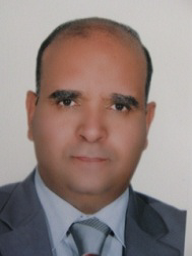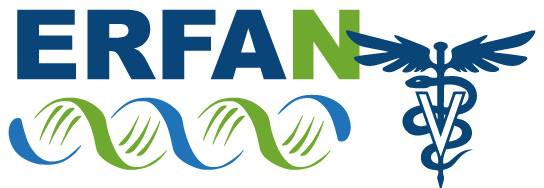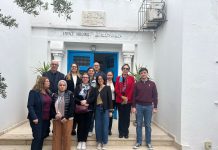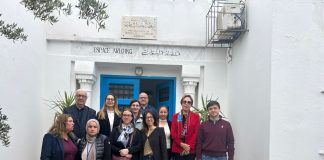Dr. Salah Hammami, Ecole Nationale de Médecine Vétérinaire, member of ERFAN WG “Maladies à transmission vectorielle”-Northwest Africa

Salah Hammami received his initial training in veterinary medicine in Tunisia and obtained his doctorate (DVM) in 1982from the National School of Veterinary Medicine (ENMV). He was recruited during the same year at the Institute of Veterinary Research of Tunisia (IRVT). His initial training was supplemented by specialized postgraduate studies in General and Medical Immunology (CES) at Pasteur Institute-Tunisin 1983. In France, Dr.Hammami attended training in the production of rabies vaccine in the reference laboratory for WHO in Nancy in1983. By integrating the IRVT, Dr.Hammami set up a unit for rabies diagnosis and vaccine production, which became operational in late 1983with the support from the WHO. In the USA, Dr.Hammami pursued postgraduate studies for almost eight years at the University of California-Davis and earned a Master’sdegree in Preventive Veterinary Medicine (MPVM), a Master’sdegree in Microbiology (MA) and a PhDdegree in Microbiology, field of Virology. The thesis focused on Rotavirusesand Bluetongue viruses. He has also served as a research and teaching assistant in immunology and virology on a contractual basisatthe Veterinary School-Davis. Back from the USAin 1992, Dr.Hammamiwasrecruited as an Associate Professorat the ENMV with the mission to create a laboratory of virology at IRVT and he was appointed Deputy Director Generalof this Institute. Promoted to full Professor in 2000, Prof. Hammami wasthen appointed Director General of the IRVT in 2002. In this position for 8 yearsand as head of the virology laboratory for 18 years, Prof. Hammami has developed and implemented a strategy to upgrade theinfrastructures and develop diagnostic and researchactivities.The objective of setting up a modern laboratory of virology at the IRVT has been accomplished. Principal investigator for numerous research and development projects and author of around 100 scientific articles in (Indexed-orwith Impact Factor-)journals, book chapters on viral Transboundary Animal Diseases (TADs) and other topical issues, Hammami is a professor of Microbiologyand Immunology and postgraduate advisor for students in Master’s andPhD’s(seeResearchgate:https://www.researchgate.net/profile/Salah_Hammami2/contributions). He was elected member of the OIEScientific Commission(2006-2009),member of theOIECode Commission(2012-2015; 2015-2018; 2018-2021) and member ofAdhoc groups of this organization. Professor Hammami has chaired and was a founding member of a number of scientific or professional societies or associations (e.g., Tunisian Society of Microbiology(STM), Tunisian Association of Viral Animal Diseases(ATMVA)). Prof. Hammami was appointed president (1998-2006) and rapporteur (2007-2009) of the National Commissionin charge of programming and evaluating research in the field of animal health, president of the national commission for control of Salmonellosis in poultry (2010-2012)and president of commissionsforthe evaluationof several research laboratories. Prof. HammamI has servedas a consultant or expert at the national levelorfor the benefit of international organizations (OIE, FAO, WHO, IAEA, AU-IBAR). He was especially certifiedexpertby the OIE in the evaluation of national veterinary services using the PVStooland evaluated severalof these Servicesin Sub-SaharanAfricaandthe MENAregion. Professor Hammami holds awards including the Order of National Merit for services performed in higher education and scientific research. In 2009, Prof.Hammami was appointed Director Generalof National Centrefor Zoosanitary Vigilance (CNVZ) with the aim of developingthe activities of this center: he has developed a strategy and elaborated a twinning project funded by the EUaimingat strengthening the different services of the CNVZ (epidemiology, information system, risk analysis, continuous education, research, etc.)in preparation for therecognitionby the OIE as a reference center.In 2013, ProfHammami integratedthe ENMVas a full professor of microbiology-immunology.Sine2014, in addition to his teaching and research activities, Prof. Hammami focused his activities in Africa serving as a scientific consultant/expertfor international organizationsand covering different themes such as the improvement of the productivity of livestock through strengthening the control of TADsin Africa, enhancing veterinary diagnostic laboratorybiosafety and biosecurity capacities to address threats from zoonotic and TADs in Africa, evaluation of the performance of veterinary services and reference laboratories in severalcountriesand member of a panel of expertsin animal health at the AU-IBAR.In addition, Prof. Hammami is a president of a biosafety and biosecurity commission in veterinary diagnostic laboratories and has a very good command of three languages (Arabic, French and English).













